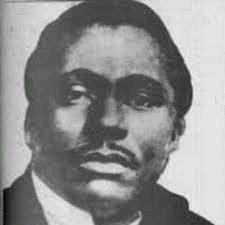John Payne Jackson (25 March 1848 – 1 August 1915) was an Americo-Liberian journalist, born in Liberia, who became influential in Lagos, Nigeria, around the turn of the 20th century. He edited and published the Lagos Weekly Record from 1891 until his death. The paper was noted for its anti-colonial and African nationalist stance.
Early Years
John Jackson was born on 25 March 1848 in Cape Palmas, Liberia. His father, Thomas John Jackson, migrated from Maryland, USA, and served as a town councilor, judge, and Methodist preacher. His mother was also possibly from Maryland. Jackson lost his father at age four.
- Educated at the Training Institute in Cape Palmas under Bishop John Payne.
- Initially aspired to be a merchant.
- In the late 1860s, worked for Lagos merchant J. S. Leigh, managing a station in Brass River.
- Attempted trading palm products independently but was edged out by European competition.
- Joined the Lagos Times in 1882 but was dismissed due to alcohol issues.
- Worked for British firms such as Dorling and Co. and Edward Chancillor.
The Lagos Weekly Times
- Persuaded Richard Beale Blaize to let him run the Weekly Times in 1890.
- First edition published on 3 May 1880.
- Assistant editor: Ladapo Samuel Ademola, who later became Alake of Abeokuta.
- Due to legal threats, renamed the paper to Lagos Weekly Record in 1891.
Lagos Weekly Record Editor
Jackson revived the newspaper with support, possibly from Dr. John K. Randle.
Context and Reach
- Lagos had a population of 35,000, with a diverse cosmopolitan mix.
- Weekly Record became known for insightful, nationalistic commentary.
- His paper supported Dahomey resistance, Nana Olomu, and Samori Ture.
- Close to Gbadebo I, Alake of Egbaland.
- Supported British in the 1892 Anglo-Ijebu War, expecting post-war British withdrawal.
- The Record was subsidized by Governor Gilbert Thomas Carter (£150 annually).
- Purchased second-hand printing press in mid-1890s.
- Sold ~600 hand-printed copies weekly — most popular Lagos newspaper.
Changes in Government Support
- Under Governor Henry McCallum (1897), Jackson’s criticism of the government increased.
- Government advertising support ended in 1900.
- In 1904, moved offices to Samadu Quarters at the Marina.
Land and Legal Issues
Jackson became a vocal critic of colonial land policies that threatened traditional ownership systems:
“The life of the native of West Africa is of a communal order... To contend that ownership does not exist... is equivalent to divesting the word ownership of all meaning.” — Lagos Weekly Record, 1912
He emphasized the importance of voicing the Native point of view, which was underrepresented:
“Our aim is to give greater prominence to the Native point of view...” — 1905 editorial
Political Role and Nationalism
- Co-led the nationalist movement with Herbert Macaulay.
- In 1912, led a delegation touring Yorubaland for five months.
- Newspaper provided extensive coverage of grassroots consultations.
Kitoye Ajasa later founded the Nigerian Pioneer (1914) as a more moderate alternative.
- Jackson's health deteriorated post-Yorubaland tour; his son Thomas Horatio Jackson took over in 1914.
- Jackson died on 1 August 1915.
Opinions and Ideology
- Influenced by Edward Wilmot Blyden’s pan-Africanist philosophy.
- Criticized European influence for causing racial and moral decline among Africans.
- Admired Islamic values and often criticized Christian missionaries.
“Islam has produced munificent Africans... Christianity has produced but money grabbers.” — 1893
- Changed stance from opposing to supporting polygamy.
- Advocated cultural preservation and racial pride:
“Put the aborigines well in front, go back to the simplicity of your fathers...” — Lagos Weekly Record
"Devilization"
Devilization — a pun coined by Jackson to critique the superficial and corrupting effects of Western civilization on Africans.
“After a century of trial... the native should call a halt... and take stock of the result of this foreign system...”
— “Devilization in Africa”, Dakota County Herald, 22 May 1908
Legacy
- Described by Blyden as “an able man” with “very strong race feelings.”
- A Yoruba newspaper called him a “field marshal, philosopher and evangelist.”
- Jackson College of Journalism (now Department of Mass Communication), University of Nigeria, Nsukka, was named in honor of John and Horatio Jackson.
- Department journal renamed The Jacksonite in 2006.
References
- Lagos Weekly Record
- Dakota County Herald, 22 May 1908
- Nigerian Pioneer archives
- University of Nigeria Nsukka Mass Communication archives
